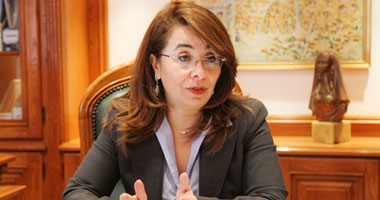 The Cairo Institute for Human Rights Studies would like to extend its appreciation to the Ministry of Social Solidarity (MoSS) for having responded to the joint press statement, signed by 25 rights groups, on June 10 following the visit of a committee appointed by an investigating judge to examine the activities of the Institute. We would like to remind the MoSS of our request for a dialogue on Law 84/2002 regulating civic associations—a call we directed to the ministry in October, and which has not been responded to.
The Cairo Institute for Human Rights Studies would like to extend its appreciation to the Ministry of Social Solidarity (MoSS) for having responded to the joint press statement, signed by 25 rights groups, on June 10 following the visit of a committee appointed by an investigating judge to examine the activities of the Institute. We would like to remind the MoSS of our request for a dialogue on Law 84/2002 regulating civic associations—a call we directed to the ministry in October, and which has not been responded to.
In its response, the ministry clarified that it has no connection to the examining committee, which was formed by an investigating judge. The ministry’s statement also denied that the measure was related to CIHRS director Bahey eldin Hassan’s testimony on the crisis of human rights before the European Parliament. Elena Valenciano, the chair of EP’s human rights subcommittee, and who moderated the hearing during which Hassan spoke, however, said “I am alarmed at the possibility that the actions taken against the CIHRS may be in any form in retaliation for its testimony in our Subcommittee.”, She added “ I fear that the general orientation of such policies of clamping down on civil society organizations dealing [with] human rights, seem to be rather more a matter of political will than a judicial procedure, entirely outside the executive’s control.”
We note that the work of the CIHRS, like that of other organizations working in human rights, focuses on respect for the rule of law. The struggle of these institutions for the past 30 years has aimed only at fully entrenching the foundations for the rule of law. These organizations have dealt with the changing political reality with the same logic, regardless of the difference in administrations. CIHRS and other independent rights organizations invited the government to a dialogue regarding central issues including freedom of association and liberating civil society. In this regard, CIHRS led a large number of negotiations and dialogues with various governments from the time of former President Mubarak to the transitional government after July 3, 2013. Indeed, after July 3, rights organizations were involved in a 6-month long dialogue with the Ministry of Social Solidarity, under the ministerialship of Dr. Ahmad al-Borai, on the new draft law for Civic Associations, and which resulted in a draft law that was close to satisfying international standards. Once the ministry decided to present the draft law to the Cabinet once in place, al-Borai was removed from his position after a ministerial reshuffle. As a result, the draft law, the first to be built on a compromise between the government and rights organizations, disappeared. The new ministry presented another draft law, the sources of which are unknown.
Last year, CIHRS tried to open up dialogue with the Ministry of Social Solidarity. CIHRS director met with Prime Minister Ibrahim Mehleb and submitted a memorandum signed by 23 rights organizations during a meeting in the latter’s office on July 24. CIHRS also sent a memorandum to President Abd al-Fattah al-Sisi on August 26. All of these dialogue initiatives went unanswered, unless the government considers the orchestrated media campaigns, threats, referrals to investigations, and even death threats as responses to our dialogue initiative.
Regarding the foreign funding case referenced by the ministry, the Supreme Judiciary Council called in 2012 for an independent investigation into the circumstances surrounding this case, which has entailed disgraceful interventions by state executive and security agencies in the judicial process. At the time, this prompted the judge to withdraw from the case and issue a public objection. In a joint statement in March 2012, the CIHRS and other rights organizations called for investigation into “all stages of the case should be investigated, starting with the handpicking of the investigating judges and leaks of ostensibly confidential case-file information—whether misleading, correct, or decontextualized —to the media to discredit and smear the defendants and human rights groups, including reporting that the defendants were suspected of serious crimes including conspiracy to destabilize the country. As well as the exploitation of nationalist sentiments to justify a punitive attack on human rights organizations for their role in exposing the government’s human rights violations.”.
This case—a flagrant politicization of the judicial process—is being reopened as even more questions are being raised about the judiciary’s independence from the executive authority. The doubts were recently expressed by high-level independent UN experts in a statement issued on 31 March 2014 in which they described some court rulings as a “mockery of justice.” The CIHRS, and all those concerned about civil society and the reputation of the judicial system, are troubled by the reopening of this case at this time for precisely this reason.
The ministry’s reassurances in its statement that it did not seek to harass rights institutions is belied by recent government actions. The past months have seen numerous violations targeting human rights activists and organizations, from the Ministry of Social Solidarity’s warning on July 28, 2014 to its November 10 deadline for civic associations to register under the repressive Law 84/2002 to threats of imprisonment and at times death directed at human rights defenders. These actions prompted several prominent human rights defenders to leave the country while several rights and cultural organizations and centers scaled down their activities or moved some programs and activities outside the country, as did the CIHRS last year.
The government assault on rights organizations has developed new tactics, part of its efforts to suppress all critical voices, Islamist or secular, or any view at odds with that of the current administration. Independent rights groups have documented these violations in a statement, including, for example, the travel ban issued as part of the foreign funding case, on leaders of the Egyptian Democracy Academy. It should be noted that the Egyptian Democracy Academy had actually registered with the MoSS as a civic organization in last year’s rush to meet the ministry’s deadline for registration. In another case, the Ministry of Social Solidarity’s refused to register the Foundation for Victims of Abduction and Involuntary Disappearance without stating cause. The ministry also failed to respond to the registration application submitted by the Egyptian Movement for Rights and Freedoms within 60 days, which has impeded the foundation’s operation. According to one of the founders of the group, the refusal to recognize the registration of the association is due to unnamed objections from the security bodies. The Ministry of Social Solidarity similarly refused to register the Arab Center for the Independence of Judges and Legal Professions, demanding that the founders change the name on the grounds that the organization will operate in Egypt, not in “the Arab world,” and that in any case judicial independence is enshrined in the Egyptian constitution; the ministry proposed several alternative names to the founders that would allow them to register the group. These and other violations cited in the statement above demonstrate the government’s full desire to curtail the human rights movement.
The daily politicization of the judiciary is destroying one of the most important accomplishments of the modern Egyptian state, and it is shameful that this process is being carried out in the name of strengthening the Egyptian state. Until recently, the Egyptian judiciary was looked upon internationally with respect, and was, despite its shortcomings, perceived to be one of the best judicial systems in the Arab region. Now, with its verdicts and rulings, it has become an object of regret and ridicule.
Finally, the CIHRS hopes that threats to exploit the judiciary politically or security-wise, as well as the death-threats, will end, the voice of reason and wisdom will prevail, and, in turn, a serious dialogue can be initiated that includes all peaceful parties without exclusion—an initiative that the CIHRS has tirelessly advocated to no avail. The ongoing systematic suppression of all independent voices and social forces opposed to terrorism every day leads more citizens to despair of the futility of peaceful expression and join the ranks of extremism. This is demonstrated by the daily escalation of acts of unorganized, individual violence, from the north to the south of Egypt, in tandem with organized terrorist attacks in Sinai. We must revise this stance before it is too late. It is the path to the further destruction of social forces and instability, as Egypt makes way for the forces of chaos and terrorism in the Arab region.
Share this Post

